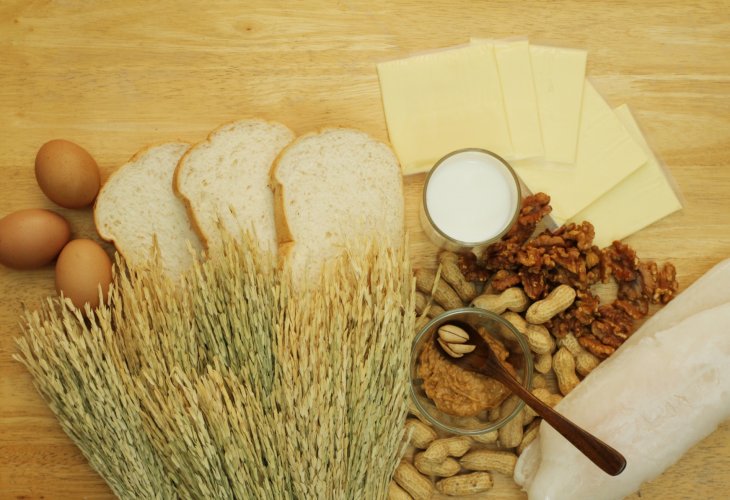Could Protein Sensitivity Be Affecting Your Health?
Wheat protein and milk protein are just two types of proteins that might cause sensitivity in different individuals. Find out which protein might be affecting you and what you can do about it.
 (Photo: shutterstock)
(Photo: shutterstock)Today, many illnesses emerge due to sensitivity to various foods, particularly to the proteins in them, because of the extensive processing food undergoes before reaching our plates. The main proteins that can trigger an immune response in the digestive system in this generation are: wheat protein - gluten (wheat has undergone many modifications in recent years and thus is harmful to many of us), and milk protein - casein.
There might also be issues with egg and soy proteins (if genetically modified), sesame (tahini), corn (genetically modified), yeast in bread, rice (due to excessive consumption), and animal proteins - meats and poultry which might cause sensitivity after frequent and excessive exposure. All these foods are rich in complex proteins, and it's possible that the immune system could attack them, potentially leading to symptoms like high blood sugar, inflammation in various parts of the body, weight gain, autoimmune diseases, hormonal problems, bloating, abdominal fat, and more.
Before you despair, it's important to know that everyone reacts differently to these foods, so it's beneficial to know which types of protein you're sensitive to, in order to heal and feel better. The best way to find out which food you're sensitive to is through antibody testing in stools – it reflects the immune system's activity (creation of antibodies) in the intestines, where food enters our body for the first time, rather than a blood test which sometimes misses sensitivity to gluten protein, for example.
So, what can you eat? Ideally, your daily menu should be based on consuming simpler proteins, such as: vegetables, root vegetables, fruits, nuts, almonds, seeds, green leaves and sprouts, legumes (preferably sprouted), and certain grains that are not genetically modified, assuming you're not sensitive to gluten present in grains. The desired grains are: spelt, oats, rye, and barley (avoid wheat because it's heavily modified and far from being the healthy wheat of the past). Most importantly, diversify our foods as much as possible with the complex proteins mentioned above and reduce them on weekdays, such as: meat, poultry, fish, eggs, etc.
The best advice is to start with a simple menu for a week, consisting of fresh fruits in the morning with raw almonds, healthy spelt or rye bread without yeast with healthy spread, a large vegetable salad with avocado during the day, and legume-based soups or stews. Your overall feeling should improve during the week, and this is the direction for good health and a pleasant feeling, with Hashem's help. Later, consult a naturopath who can organize and vary your menu.
To purchase books on nutrition, click here.
To book home workshops with naturopath Ruth Liat Pelz (at no cost), call 073-2221290

